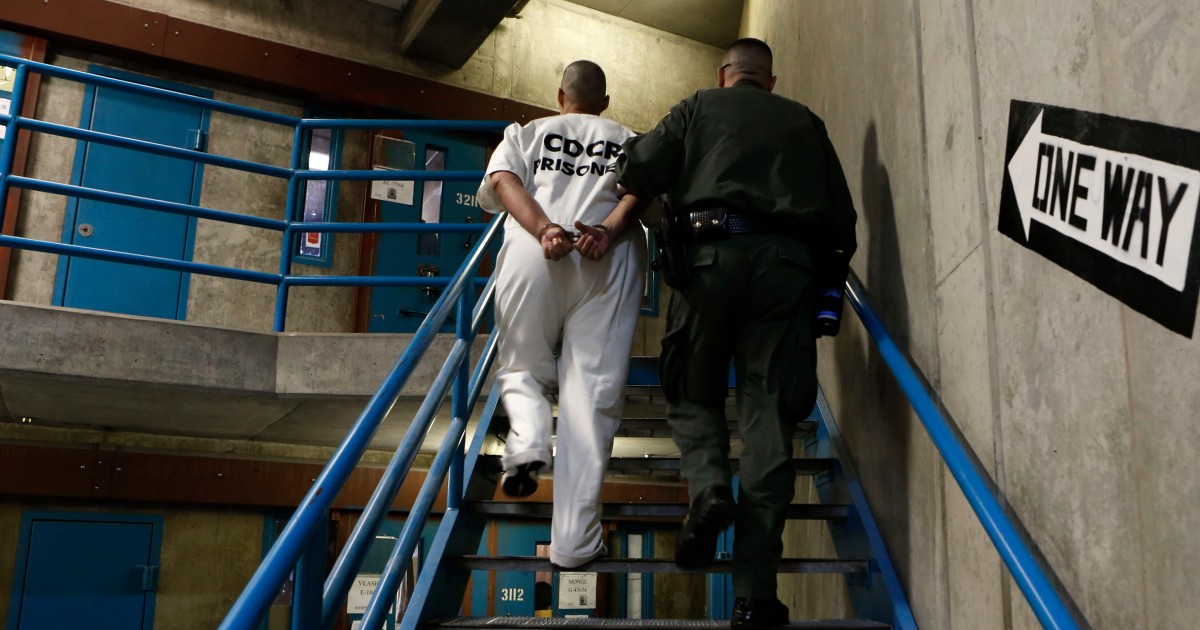Democratic-aligned senators introduced legislation Tuesday that would largely ban the use of solitary confinement in federal institutions and give states and local jurisdictions incentives to do the same.
The End Solitary Confinement Act, a companion to a bill that over a dozen House Democrats introduced in July, would also prevent inmates and detainees from being segregated alone for more than four hours to de-escalate emergency situations and, even then, require staff members to meet with them at least once an hour.
And, similar to the House bill, incarcerated people would also be entitled to at least 14 hours of daily time out of their cells, including access to seven hours of programming meant to address topics such as mental health, substance abuse and violence prevention.
The Senate legislation is being introduced by Elizabeth Warren and Ed Markey, both D-Mass.; Bernie Sanders, I-Vt.; and Peter Welch, D-Vt.
“Being forced into a small, concrete cell without windows for hours, days, weeks, and even months on end isn’t rehabilitation, it’s cruelty,” Markey said in a statement. “Solitary confinement is unjust and inhumane torture that disproportionately targets our nation’s most vulnerable groups.”
Roughly 122,000 people in federal and state adult prisons and federal and local jails are placed in restrictive housing — informally known as solitary confinement — for 22 hours or more on a given day, according to a nonprofit watchdog report based on government data.
A bill Senate Democrats introduced last year sought to reduce the use of solitary confinement by the Federal Bureau of Prisons, but these bills would go further not only by capping the hours inmates can spend isolated, but also by mandating that the federal government regularly report the number of incidents of self-harm and suicide at federal facilities, as well as the use of solitary confinement and demographic breakdowns of those confined during emergency de-escalation situations.
It’s unclear whether the End Solitary Confinement Act can get support from Republicans or President Joe Biden, who made a campaign pledge to overhaul the federal prison system, in part “by ending the practice of solitary confinement, with very limited exceptions.” The White House didn’t immediately respond to a request for comment about the legislation.
BOP Director Colette Peters said late last year, a couple of months after she took over the position, that she also wanted to know why the use of restrictive housing surged when the Biden administration promised to ease its use.
BOP figures show the number of people held in restrictive housing was up 7% this week compared to May 2022, when Biden issued an executive order to overhaul the criminal justice system and ensure federal inmates are free from “prolonged segregation.”
In recent years, all but a handful of states have introduced or passed legislation to curb solitary confinement, including ending the practice for vulnerable populations, such as juveniles and pregnant or LGBTQ prisoners.
But unions representing corrections officers in states such as Connecticut and New York have spoken out about threats to staff safety and the creation of unsafe conditions for workers and inmates that they say are the results of new laws that limit solitary confinement.
Prisoner advocacy groups insist there is growing momentum and support for ending the practice, and an independent monitoring agency that examined the law in New York found that “segregated confinement causes harm” while effective alternatives decrease violence and increase safety.
The latest federal bill would “dismantle the walls of isolation and torture, and provide a blueprint for states and other jurisdictions to follow in order to fully eliminate this barbaric practice in America,” Jessica Sandoval, the director of the advocacy campaign Unlock the Box, which helped prepare the report on the use of solitary confinement in U.S. prisons and jails, said in a statement.











